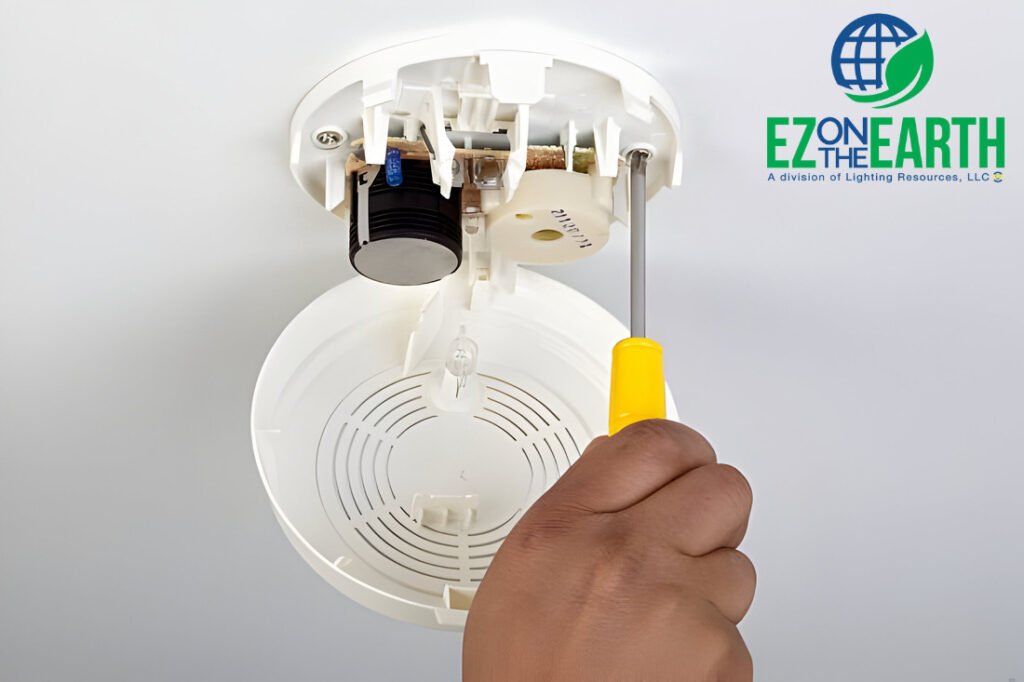Smoke detectors are essential devices that ensure safety in our homes by alerting us to the presence of smoke and potential fire hazards. However, when these devices reach the end of their life cycle, disposing of them responsibly is crucial. In this guide, we will walk you through the steps and best practices for smoke detector disposal. We will also discuss the environmental impact and provide tips for proper disposal that comply with local regulations.
Understanding the Types of Smoke Detectors
Before discussing how to dispose of a smoke detector, it’s essential to know the types of smoke detectors available. Generally, there are two main types of smoke detectors:
- Ionization Smoke Detectors
- Photoelectric Smoke Detectors
Ionization Smoke Detectors
Ionization smoke detectors use a small amount of radioactive material, usually Americium-241, to detect smoke. This radioactive material can pose a challenge when it comes to disposal, as improper handling could lead to environmental contamination. Although the radiation emitted is very low and not harmful during regular use, it is important to handle these detectors carefully during disposal.
Photoelectric Smoke Detectors
Photoelectric smoke detectors, on the other hand, rely on light sensors to detect smoke particles. These do not contain radioactive materials, making their disposal simpler and less hazardous compared to ionization detectors. However, they still need to be disposed of correctly to minimize environmental impact, as they contain electronic components that should not be dumped in landfills.
When Should You Replace a Smoke Detector?
Smoke detectors, regardless of their type, have a limited lifespan. Most smoke detectors need to be replaced every 8-10 years. Over time, their sensors become less effective, increasing the risk of failure in the event of a fire. Many modern smoke detectors have a built-in end-of-life signal that alerts you when it’s time to replace the unit. Additionally, it’s important to replace smoke detector batteries at least once a year to ensure the device remains functional.
How to Dispose of Smoke Detectors Safely
Step 1: Identify the Type of Smoke Detector
The first step in smoke detector disposal is identifying whether you have an ionization or photoelectric model. This information can typically be found on the back of the unit, where the model number and other details are listed.
If your detector contains radioactive materials (ionization smoke detector), you must follow specific guidelines to dispose of it. Local regulations may vary, so it’s essential to check with your local waste management authority.
Step 2: Follow Manufacturer Instructions
Most manufacturers include guidelines for disposing of their smoke detectors. Before discarding a smoke detector, it’s recommended to consult the user manual or the manufacturer’s website for any specific disposal instructions. Some manufacturers even offer take-back programs, where they will safely recycle or dispose of the unit for you.
Step 3: Utilize Local Recycling Programs
Many cities and towns have recycling centers that accept electronic waste (e-waste). Smoke detectors, particularly photoelectric ones, can often be dropped off at these locations for proper disposal. Electronic waste facilities ensure that the components are recycled responsibly and do not end up in landfills, where they could cause environmental harm.
Step 4: Contact Local Hazardous Waste Centers
If you have an ionization smoke detector, it’s critical to contact a local hazardous waste facility. Because ionization detectors contain small amounts of radioactive material, they must be disposed of as hazardous waste. These facilities are equipped to handle and dispose of radioactive materials safely, ensuring that the radiation does not contaminate the environment.
Step 5: Mail-Back Programs for Ionization Detectors
Some manufacturers offer mail-back programs specifically for ionization smoke detectors. You can contact the manufacturer, and they will provide instructions on how to mail the device back to them. The manufacturer will then properly dispose of the radioactive materials, often at no additional cost to you.
Step 6: Avoid Throwing Smoke Detectors in Regular Trash
Under no circumstances should smoke detectors, especially ionization models, be thrown in regular household trash. Doing so could lead to the release of harmful materials into the environment, particularly in landfills where waste is not always treated or processed for radioactive or electronic waste.
Environmental Impact of Improper Smoke Detector Disposal
Improper disposal of smoke detectors, particularly ionization models, can have severe environmental consequences. Radioactive materials can contaminate soil and water sources if not handled correctly, leading to long-term environmental damage. Additionally, the electronic components in both ionization and photoelectric detectors contain heavy metals like mercury and lead, which can leach into the environment, posing health risks to humans and wildlife.
Recycling smoke detectors helps to mitigate these risks. The electronic components can be repurposed, and any hazardous materials can be safely neutralized.
State and Local Regulations for Smoke Detector Disposal
It is essential to be aware of local laws and regulations when disposing of smoke detectors. In some states, such as California and Minnesota, there are specific guidelines for the disposal of e-waste and hazardous materials, including smoke detectors. Always check with your local or state environmental protection agency or waste management service to ensure that you are disposing of your smoke detectors in compliance with local laws.
Nationwide Mail-In Programs
Several companies, such as Curie Environmental Services, provide nationwide mail-in programs for disposing of ionization smoke detectors. These programs allow you to ship your detector directly to a processing facility that is equipped to handle radioactive materials. For photoelectric detectors, many e-waste recycling centers offer drop-off or pickup services for convenient disposal.
Conclusion: The Importance of Responsible Smoke Detector Disposal
Disposing of smoke detectors responsibly is not only a matter of complying with local laws but also a step toward protecting the environment from hazardous materials. Understanding the type of smoke detector you have and following the proper disposal methods can prevent harmful materials from entering landfills and reduce the environmental impact of e-waste.
Whether you are dealing with an ionization or photoelectric smoke detector, recycling or using specialized disposal services ensures that these devices are processed safely and sustainably. Always prioritize safe disposal practices, check with local authorities, and take advantage of manufacturer take-back programs to ensure responsible disposal.
















































